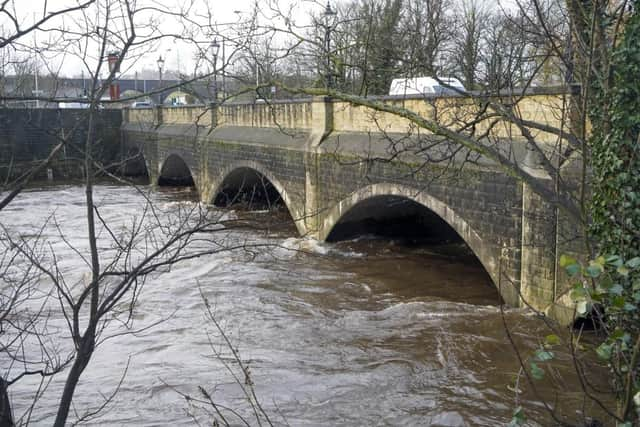Sewage discharged for ‘thousands of hours’ into Yorkshire river
Simon Lightwood, MP for Wakefield, raised the disturbing data at Westminster as he called on environment secretary Therese Coffey to get tough on water companies. Last month Wakefield Council approved a motion calling for urgent action on sewage discharges to protect the district’s waterways.
Jack Hemingway, the council’s deputy leader with responsibility for climate change, proposed the motion after Rivers Trust figures showed there had been 400 sewage and waste water discharges along a three-mile stretch of the Calder during 2021. The discharges, between Horbury Bridge and the M1 motorway, went on for a total of 2,400 hours, equivalent to 100 days.
Advertisement
Hide AdAdvertisement
Hide AdCoun Hemingway told a full council meeting: “It is a staggering and an appalling figure which shows the extent of material entering our river. This is completely unacceptable in the 21st century and we can and must do better.


“Our district has a history of fighting against pollution and helping nature to recover. We cannot sit back and let our rivers be completely polluted and ruined by this abhorrent practice.”
The motion, which was backed by councillors from all parties, condemned the government’s inaction. It also pledged to write to Yorkshire Water and to work with the Canal and River Trust to improve Wakefield’s water quality.
Referring to the motion in parliament, Mr Lightwood said: “Even Wakefield Conservative Group supported that motion. Can we please have a statement for the Environment Secretary on what she will do to crack down on water companies and stop sewage being discharged into our waterways for good?”
Advertisement
Hide AdAdvertisement
Hide AdPenny Mordaunt, leader of the the House of Commons, said she would ensure that Environment Secretary heard his request for an update.
She said: “It is very clear what the Government is doing to ensure that storm overflows and these discharges are ended for good. There is no piece of legislation that can switch those overflows off. The only thing that will stop them is investment in infrastructure. That is why there is now a statutory duty on those companies to bring forward that infrastructure plan, they are doing that.”
Labour have promised to deliver mandatory monitoring of all sewage outlets if in government. The party has also said it would introduce a legally binding target to end 90 per cent of sewage discharges by 2030. Labour also proposes to introduce automatic fines for discharges, to strike off company directors who break the rules and to ensure illegal activity is punished.
Research by the Wildlife Trusts shows that the UK’s rivers are among the most polluted in Europe. A report published in January 2022 by the parliamentary environmental audit committee said only 14 per cent of English rivers meet good ecological status. It says pollution from agriculture, sewage, roads and single-use plastics contribute to a dangerous ‘chemical cocktail’ coursing through our waterways.
Advertisement
Hide AdAdvertisement
Hide AdIt concludes: “Not a single river in England has received a clean bill of health for chemical contamination.”
In December, the environment secretary announced new targets for nature recovery which pushed back plans to tackle poor water quality in rivers and lakes by 36 years, from 2027 to 2063. The announcement faced widespread criticism from wildlife groups.